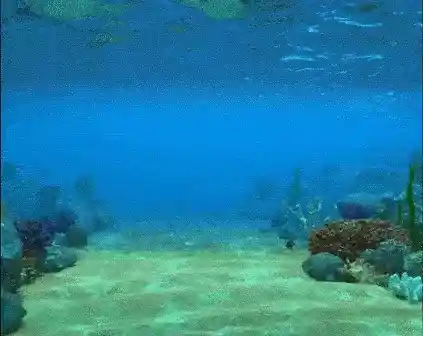explorAR
Traveler
I am interested to hear what other people think about learning theory and fundamentals of a given medium/art versus just feeling out a piece of art. In my mind I am always balancing whether I should spend time doing artistic endeavors in a structured way or just jazz it. In my more comfortable media, visual arts, I have done tons of pieces using either approach; also using different combinations of structuring the overall piece and then feeling out the details or vice-versa.
The reason I am thinking about this in the first place, is that I am starting my personal journey to try and make music for a project of mine. This isn't my first time having interest in creating music, since I am an avid music fan (we're on a vaporwave forum for christ sake). I have a huge discomfort with making music at the moment, however, and this is what has prevented me from making music during my past attempts. Not to say that I can't make small little beats and things like that (I feel like anyone can), but when it comes to actually calling things that I make "music" I feel that there needs to be something more to it. So I have been spending tons of time getting into music theory, so that I can understand the basics.
While I was at a local kava bar I ran into a musician who was making music on a synth/arranger and I was curious to pick his brain about music theory. His recommendation to me was that I don't need to learn theory at all. I assume that he is saying that from the position taking for granted the years of experience he has. So I considered ignoring his recommendation and just learning music theory anyways because it is helping me and interesting. On the other hand, I also think I shouldn't act like I know what's better as an amateur than someone who is farther along in the path of "being a musician." Regardless of what is the best way/fastest way for me to start producing music, I probably I am still going to absorb some more music theory just for fun, but I am curious if his recommendation of music theory being needless is right for a beginner.
Now a part of me thinks that standardized practices and fundamentals, when it comes to art, are kind of evil in a way. I think this must be some sort of ego-based thing, where somehow the alternative of toughing something out the hard way and not learning "the standard method" makes the final product somehow have more soul and will have the potential to reinvent the medium. Or maybe it's that by learning the proper methods and ways to go about things I am preventing myself from making outside art... or am I?
I am very generally conflicted about the whole things. I truly believe that if you don't learn fundamentals you are purposely and needlessly stunting yourself, but also overreliance on what is supposed to be 'good' also results in bad boring art. And boring is always worse than bad. I also think that thinking of this in terms of music is especially potent since there is always an air about creating music that seems like someone is laying their soul out for all to bare. Whereas with visual arts, which I am more used to, there are elements of that, but it isn't as performative. In visual arts the people who are extremely pretentious and don't know the fundamentals just suck and are way up their own ass. In music though you have people that can just fluke by and actually make really amazing music (that's atleast my perception I can't really think of any examples, so I could be completely wrong).
Just read the bold if you wanna ignore all the fluff/ramblings
The reason I am thinking about this in the first place, is that I am starting my personal journey to try and make music for a project of mine. This isn't my first time having interest in creating music, since I am an avid music fan (we're on a vaporwave forum for christ sake). I have a huge discomfort with making music at the moment, however, and this is what has prevented me from making music during my past attempts. Not to say that I can't make small little beats and things like that (I feel like anyone can), but when it comes to actually calling things that I make "music" I feel that there needs to be something more to it. So I have been spending tons of time getting into music theory, so that I can understand the basics.
While I was at a local kava bar I ran into a musician who was making music on a synth/arranger and I was curious to pick his brain about music theory. His recommendation to me was that I don't need to learn theory at all. I assume that he is saying that from the position taking for granted the years of experience he has. So I considered ignoring his recommendation and just learning music theory anyways because it is helping me and interesting. On the other hand, I also think I shouldn't act like I know what's better as an amateur than someone who is farther along in the path of "being a musician." Regardless of what is the best way/fastest way for me to start producing music, I probably I am still going to absorb some more music theory just for fun, but I am curious if his recommendation of music theory being needless is right for a beginner.
Now a part of me thinks that standardized practices and fundamentals, when it comes to art, are kind of evil in a way. I think this must be some sort of ego-based thing, where somehow the alternative of toughing something out the hard way and not learning "the standard method" makes the final product somehow have more soul and will have the potential to reinvent the medium. Or maybe it's that by learning the proper methods and ways to go about things I am preventing myself from making outside art... or am I?
I am very generally conflicted about the whole things. I truly believe that if you don't learn fundamentals you are purposely and needlessly stunting yourself, but also overreliance on what is supposed to be 'good' also results in bad boring art. And boring is always worse than bad. I also think that thinking of this in terms of music is especially potent since there is always an air about creating music that seems like someone is laying their soul out for all to bare. Whereas with visual arts, which I am more used to, there are elements of that, but it isn't as performative. In visual arts the people who are extremely pretentious and don't know the fundamentals just suck and are way up their own ass. In music though you have people that can just fluke by and actually make really amazing music (that's atleast my perception I can't really think of any examples, so I could be completely wrong).
Just read the bold if you wanna ignore all the fluff/ramblings












